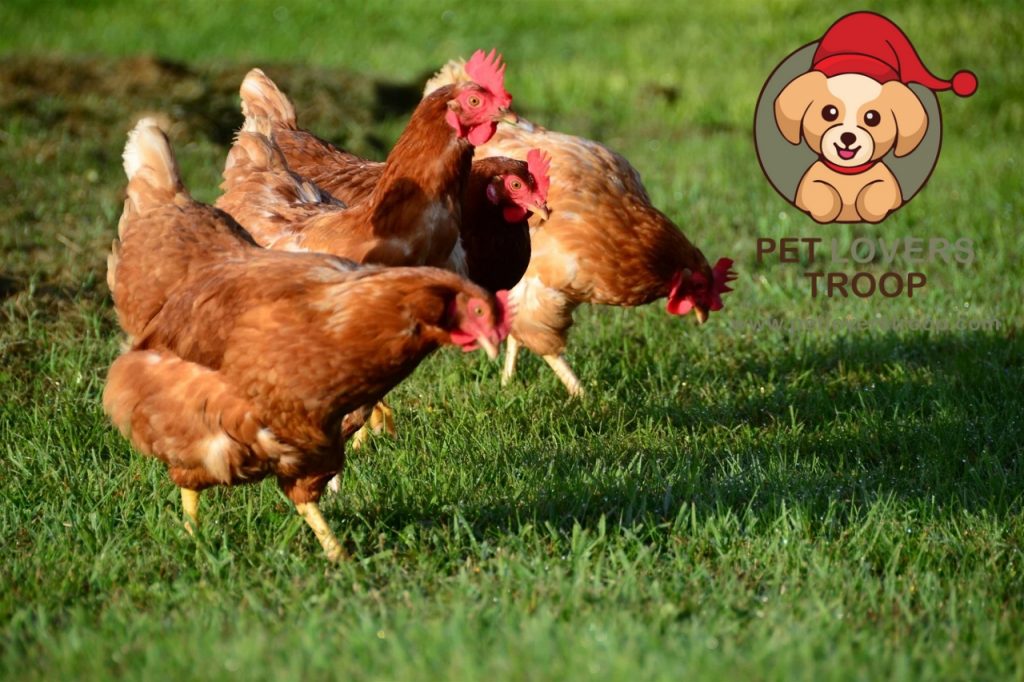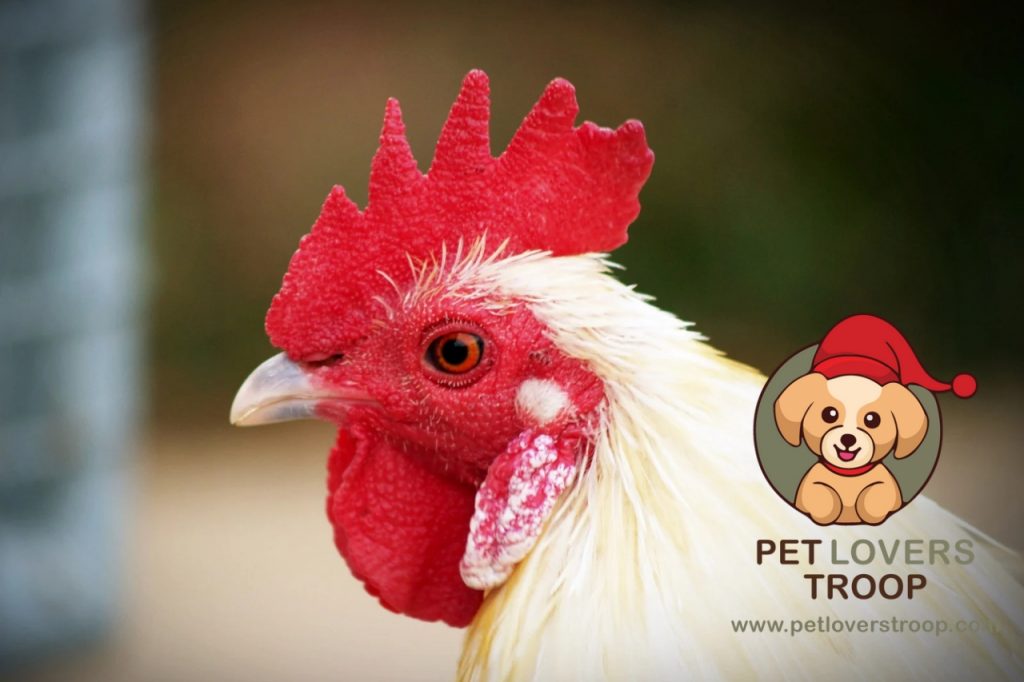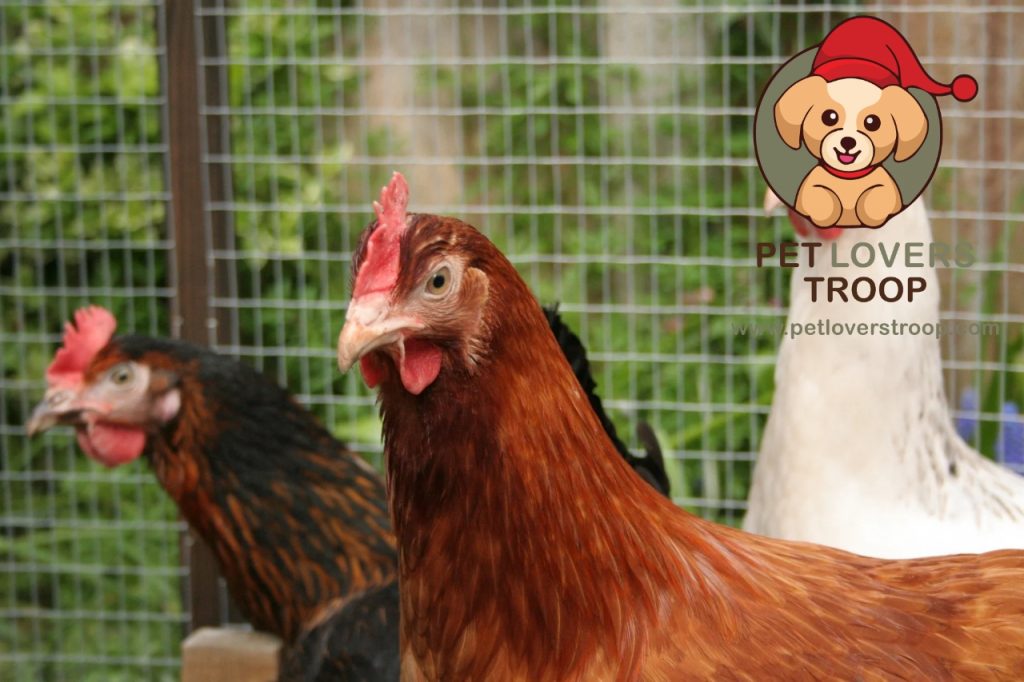It takes just one unexpected moment to change someone’s perspective.
Amanda, a home-based graphic designer, had the thought, “Why not keep a few hens for fresh
eggs and some screen-free time?” She pictured soft clucks while sipping her morning tea. Sounds dreamy, right?
But reality hit quickly.
Her hens refused to lay eggs. The coop was a disaster. She randomly saw a shivering hen huddled in the corner. That’s when Amanda realized, “Gosh, raising chickens isn’t such a cute hobby. It’s a full-time job!”
If you find yourself feeling the same mix of excitement and feeling like you’re in over your head, Welcome! Let’s explore basic chicken care together so you don’t repeat Amna’s initial mistakes and get every fulfilling moment out of your flock!

Basic Chicken Care: A Beginner’s Guide to Keeping Healthy Hens
Basic chicken care starts with the right environment. Healthy coop, clean water, and well-balanced feed are the backbone of healthy hens. Grit provides digestive assistance and nutrition ensures egg laying and energy.
Regular inspections catch sickness early. Vaccination and cleanliness ward off prevalent disease and parasites. Giving enough space for the chickens to roam is also an important aspect of basic chicken care.
Hens stay healthy and productive year-round with consistent care. Plan ahead and give them the comfort they deserve!
Read more: A Beginner’s Guide to Raising Ducks as Pets: Everything You Need to Know – December 2024
Daily Care Routine for Backyard Chickens
So, how do you start each morning with your chickens? Here’s the scoop:
Chickens need constant access to clean water. Each hen can drink up to half a quarter a day, so refilling their waterers is a morning habit. Feed should be topped up daily. A good layer feed with 16–18% protein keeps them healthy and productive. On average, a hen eats about a quarter-pound per day.
Do a midday walk by the coop. Healthy and active birds are a good sign. Don’t overlook any abnormality such as lethargy or abnormal behavior. Before the dusk, ensure that the coop is tightly closed.
Sticking to the daily routine is the foundation of basic chicken care. It keeps your hens in good health and produces lots of fresh eggs. They will be safe and snug regardless of the weather!
Read more: Bird Lifespan: How to Care for a Long-Term Feathered Friend
How to Set Up a Chicken Coop?
Ever wondered how to create a chicken coop that’s safe and cozy? Here’s the guide:
Room to Roam
Give each hen at least 3 square feet inside the coop and 10 square feet in an outdoor run. Crowded quarters lead to stress and pecking and nobody wants that!
Nesting Boxes
One box per four hens, lined with clean bedding like pine shavings. Dark, private nooks make egg-laying a breeze.
Roosting Bars
Install sturdy and rounded bars above ground level. Chickens love sleeping off the floor, just like in the wild.
Ventilation Matters
Good airflow prevents moisture buildup. But be careful. Cold and ammonia are coop villains, so fresh air is a must.
Having these features for your hens will save your valuable time. You would spend less time on maintenance and more time caring for your chickens.
Read more: Keeping Rabbits Indoors or Outdoors: Evaluating the Pros and Cons of Rabbit Houses- January 2024
Best Diet for Healthy Laying Hens
Your hens’ diet directly affects their health and egg quality. Let’s talk about the best diet for healthy laying hens!

Layer Feed First
Start with a commercial layer feed, balanced, complete, and packed with the protein (16–18%), calcium, and vitamins hens need to lay strong eggs.
Treats and Greens
Toss in kitchen scraps like leafy greens, grated carrots, or even cooked rice. Frozen watermelon rinds in summer? Yes, a must-have for hydration and fun to peck!
Grit and Calcium
Offer small stones (grit) to help digestion and provide crushed oyster shells or eggshell fragments so hens can top up calcium for strong shells.
Round out their diet with fresh water all day. Dehydrated hens lay fewer eggs, so keep that waterer full!
Read More: Bird Nutrition Basics: What to Feed your Pet Bird for a Balanced Diet
How Much Space do Chickens Need?
You’ve heard this conflicting advice: “Chickens don’t need space!” v/s “They need acres!” Who’s right? The truth lies in between.
Inside the coop, the hen must have at least 3 to 4 square feet inside and for 8 to 10 square feet in the run. Extra space reduces stress, pecking, and disease risk. More space means happier and healthier chickens.
Crowding leads to health issues and aggressive behavior. No one likes feeling cramped, your chickens included!
Read more: How to Introduce a New Pet to Your Home: A Guide to Introducing a New Pet – March 2025
Safe Treats and Foods for Chickens
Our number one tip is to maintain a 90/10 diet for laying hens: 90% full layer feed and 10% chicken treats in order to provide a balanced meal to your birds.
Scraps, scratch grains, sunflower seeds and mealworms are like sweets for birds, which can easily ruin their diet. The ideal chicken treats need to be nutritious and organic.
Hens need other nutrients such as amino acids, minerals, and vitamins. Total chicken feeds are prepared with the objective of giving this balanced diet.
For hens 18 weeks and older, look for a complete chicken feed that includes:
- 16% (minimum) protein level
- Lysine and methionine, essential amino acids
- Calcium, manganese and trace minerals for strong shells
- Filled with vitamins, trace minerals and essential amino acids
- Prebiotics and probiotics for good hen health
Always make sure treats should be no more than 10% of the diet. And avoid toxic items like raw onions, garlic, caffeine. From them, chickens can get the jitters too!
Read more: How To Create and Sustain a Healthy & Safe Environment for Your Pet
Cleaning and Maintaining a Chicken Coop
We heard you want to spend more time with your chickens, not cleaning the coop, right? Read below to unlock the secret tips!
The litter trays or droppings trays are removable and this makes waste disposal a breeze! Wide doors are another essential consideration. They provide easy access to all areas of the coop, making cleaning a piece of cake!
Once a week, refresh the space more thoroughly. Change out all bedding, scrub the nesting boxes, and wipe down the roosts. Do deep cleaning monthly. Disinfect floors and walls with a vinegar solution or a pet-safe cleaner.
Stay on top of maintenance, and you’ll have a coop that’s odor-free, pest-free, and perfect for your feathered friends!
Best Bedding for Chicken Coops
Your hens’ bedding matters for comfort and hygiene. Let’s explore the best bedding for chicken coops!
Pine shavings are a favorite for a reason. They absorb moisture well and help control coop odors. With a quick daily fluff, they stay fresh and dry, making them a reliable and low-maintenance option for most hen keepers.
Straw is a good pick during colder months since it adds extra warmth. But it breaks down quickly and needs replacing more often. Hemp bedding is soft, low in dust, and lasts longer than most materials. It’s a great choice if you’re hoping for less frequent cleanups.
Stick with these options and keep the bedding about 3 to 4 inches deep. This small step goes a long way in basic chicken care.

Conclusion
Keeping hens is more than picking up fresh eggs. It’s creating a daily rhythm that maintains your flock’s happiness, well-being, and vitality. With clean coops, healthy feed, comfortable bedding, and some TLC (Tender Love and Care), you will master the art of basic chicken care. Your chickens will eventually repay you in the best possible manner.
Read more: How To Care For Chickens – A Beginner’s Guide To Happy Chickens!
Be patient, appreciate the small things, and next thing you know, you will have a yard full of happy clucks and a bunch of eggs to pass around. It is a pure delight that multiplies by each passing day spent with your hens.

